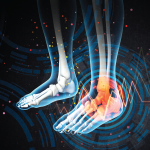
Chinnapong / shutterstock.com
Editor’s note: EULAR 2020, the annual European Congress of Rheumatology, which was originally scheduled to be held in Frankfurt, Germany, starting June 3, was moved to a virtual format due to the COVID-19 pandemic.
EULAR 2020 e-CONGRESS—Although reducing medications is a reasonable option for some patients with rheumatoid arthritis (RA)—reducing cost and giving them a sense of normalcy for at least some period of time—such a strategy is not always welcomed with open arms, an expert said at the European e-Congress of Rheumatology. Still, physicians should encourage patients to consider it, said Cornelia Allaart, MD, PhD, associate professor of rheumatology at Leiden University, The Netherlands.
“For so many years we’ve been looking at increasing drugs, getting more drugs, starting [drug therapy] earlier and improving outcomes by getting more and more, and now we’re talking about less and less,” Dr. Allaart said. “It’s a little bit of a new vista, but a very logical step.”
In two trials on drug tapering in which she’s been involved—the BeST trial, and another with a more aggressive initial treatment approach followed by tapering, called IMPROVED—the data suggest slowing or stopping medication administration is possible for many patients. But, Dr. Allaart said, a common hurdle is a patient’s anxiety.
“Most patients who are [concerned] about discontinuing their medication are dubious because they fear the flares,” Dr. Allaart said. They also worry that if they stop and then have to restart drug therapy, they’ll have lost ground they’ll never regain in the management of their condition.
Before tapering or stopping medications, rheumatologists need to have “a good conversation” with patients, letting them know that you’re only considering it because they are faring well, with low disease activity.
Why Stop Therapy?
The first, most obvious reason to consider stopping medications is to reduce adverse events. The risk of serious infections has been found to correlate with the prolonged use of glucocorticoids. Other serious side effects of glucocorticoids and other medications, such as biologic disease-modifying anti-rheumatic drugs, may include gastrointestinal bleeds, ulcers, cataracts, edema in the legs, bone fractures and sleep disturbances.1
The data suggest that slowing & stopping medication administration is possible for many patients. But, Dr. Allaart said, a common hurdle is a patient’s anxiety.
Based on the available evidence, however, reducing these events should not be the prime motivation when considering slowing a patient’s medications, Dr. Allaart said.
“These risk factors may entice us to try and taper medications,” she said. “But there’s no proof this will actually lower your risk of infections, … cardiovascular [events]” or other adverse events.
“So why discontinue?” she asked.
A major consideration is that these medications can be very expensive and stopping them, without adverse effects, makes financial sense.

